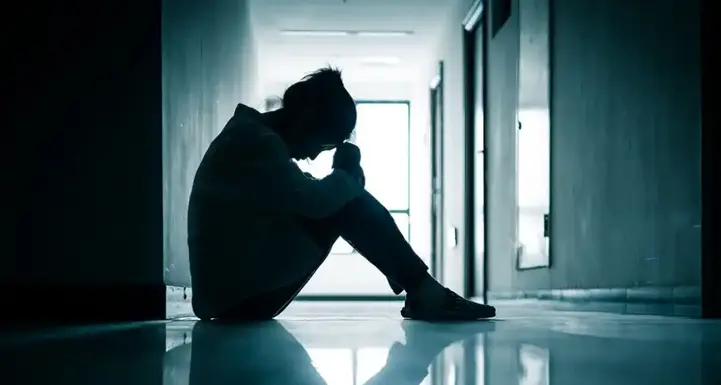Getting to rock bottom: what it means and where to go from here
Hitting rock bottom can feel like the end—but it’s often the beginning of something deeper, stronger, and more real. This article explores what it truly means to reach your lowest point—and how that moment can become the turning point toward transformation, growth, and hope.
What does it feel like to reach rock bottom?

Reaching rock bottom feels like falling into a dark pit of despair. You can't crawl out of it because there's nothing you're trying anymore. Despair overwhelms you. You realize that you can't blame others for your circumstances anymore. I have lost faith that anything can improve. Moving forward seems impossible.
Recommend
When you're at this point, everything seems to be falling apart around you. You may be overwhelmed by sadness, regret and shame. Maybe you're sinking into regret or feeling like you're losing your mind. It is possible that you feel emotionally numb or be overcome by panic attacks. You may explode into bouts of uncontrollable anger. Rock bottom may seem like a complete nervous breakdown that causes you to break up or have suicidal thoughts.
Signs that you have reached rock bottom
How do you know if you've hit rock bottom? The lowest point for each person is different. But some of the experiments that can send people to all-time lows are:
• Being fired or lost in employment
• Insurmountable financial problems
• Become homeless
• Injury that causes severe disability
• A failed marriage or the end of an important romantic relationship
• Exposure to domestic violence leading to hospitalization
• Legal problems or imprisonment
• Serious physical health crisis
• Anxiety or annoying depression
Emotional gutter with depression and trauma

Untreated mental illnesses such as depression and PTSD are one of the main reasons why people reach the emotional bottom. When mental health disorders go untreated, people are at risk of emotional breakdown. They are also at risk of harming or destroying their functions, relationships, and physical health. Moreover, reaching rock bottom can exacerbate mental health problems and also lead to new ones. At its worst, rock bottom feelings can lead to suicide attempts.
What to do when you hit rock bottom

• Engage in self-care
Prioritizing your physical health goes a long way toward improving your mental and emotional health. Do your best to get enough sleep, eat nutritious food, and incorporate some form of movement or exercise into your day. Pausing to do some deep breathing or meditating for just a few moments can make a big impact. These simple self-care strategies can improve your mood and energy.
• Build resilience
Bounce from low point to rock bottom requires flexibility. This does not mean denying how you feel or what happened. But it requires shifting your focus to the good things in your life. One way to do this is to remember and celebrate your natural talents and talents. By identifying your strengths, you can rely on them more easily when faced with challenges.
• Regain your strength
When you're at rock bottom, it's easy to feel like life is happening to you. When you adopt this position, you deny your power. On the other hand, when you take full responsibility for your life, the ability to make a difference lies with you. You understand that you can make decisions about what you want and need. There is freedom to take control of things and take steps towards achieving your goals. Over time, you'll begin to realize that you have more options than you imagined.
• Seek professional help
Overcoming the crisis requires help. There is nothing weak in asking for help. On the contrary, it is wise to get the right support when fear and distress overcomes you. If you don't have a wizard, consider finding it. Having an objective and well-trained person to discuss your conflicts with can be a turning point. A mental health counselor or therapist can help you reflect on your past and patterns in a way you may never be able to do alone or with a good friend or family member. They can also offer tools and strategies to help you reframe destructive thinking, adopt healthier behaviors, find hope, and reclaim your life.
![]()
Does pregnancy accelerate "biological aging"?
A study in the Philippines found that pregnancy may speed up biological aging in women, with each pregnancy linked to about 4 to 4.5 months of aging. This effect wasn't seen in men, and varied depending on context. Researchers hope these insights might guide future anti-aging treatments. more- ADVERTISEMENT
![]()
The best economical graphics cards for gaming and content creation - available in the Arab world
Looking for strong gaming and content creation performance on a budget? The NVIDIA GeForce GTX 1660 Super and RTX 3050 stand out for 1080p, while the AMD RX 6700 XT and NVIDIA RTX 3060 Ti shine at 1440p. Great value options packed with smooth performance and essential features like ray tracing. more- ADVERTISEMENT
![]()
The Sahara Dilemma: Are Deserts Vital to the Balance of Our Planet?
Deserts may seem lifeless, but they are vital ecosystems rich in biodiversity and cultural heritage. From storing carbon to nourishing distant rainforests, they play a key role in Earth's balance. Despite harsh conditions, both nature and humans have adapted, proving deserts are far more than dry, empty land. more- ADVERTISEMENT
![]()
Personal Success: Practical Steps Towards Achieving Goals
Personal success is about finding happiness in your own growth and goals, not just wealth or fame. It's a journey shaped by your values, efforts, and ability to adapt. Success comes from setting clear goals, staying motivated, and learning from every step along the way. more- ADVERTISEMENT
![]()
5 habits to save on your monthly allowance
5 habits to save on your monthly expenses more- ADVERTISEMENT
![]()
The Science Behind the Fireworks: Detecting Magic in the Sky
Fireworks light up the sky with magic, but behind the scenes, it’s all science—from chemistry creating dazzling colors to physics shaping every explosion. With modern tech, they’re safer and even eco-friendlier, blending beauty and brains for unforgettable shows that wow us while caring for the planet. more- ADVERTISEMENT
![]()
Why you should read every day
Why You Should Read Every Day more- ADVERTISEMENT
![]()
Time travel through remote Lewis Island in Scotland
Time Travel Through Scotland’s Remote Isle of Lewis more- ADVERTISEMENT
![]()
Mount St. Helens blast and rebirth
Mount St. Helens, once shattered by a deadly eruption in 1980, now stands as a powerful symbol of nature's recovery. From barren ash fields to thriving ecosystems, it shows how life returns. Today, it draws visitors eager to witness Earth’s healing and learn from its remarkable transformation. more- ADVERTISEMENT
![]()
The most important technical programs for mobile and computer that are indispensable for everyone
Mobile phones and computers are essential in modern life, and with the right free tools, they can boost your productivity and simplify daily tasks. Apps like Google Chrome, Google Drive, LibreOffice, and VLC Media Player are easy to use and help you stay efficient, secure, and entertained. more- ADVERTISEMENT





















